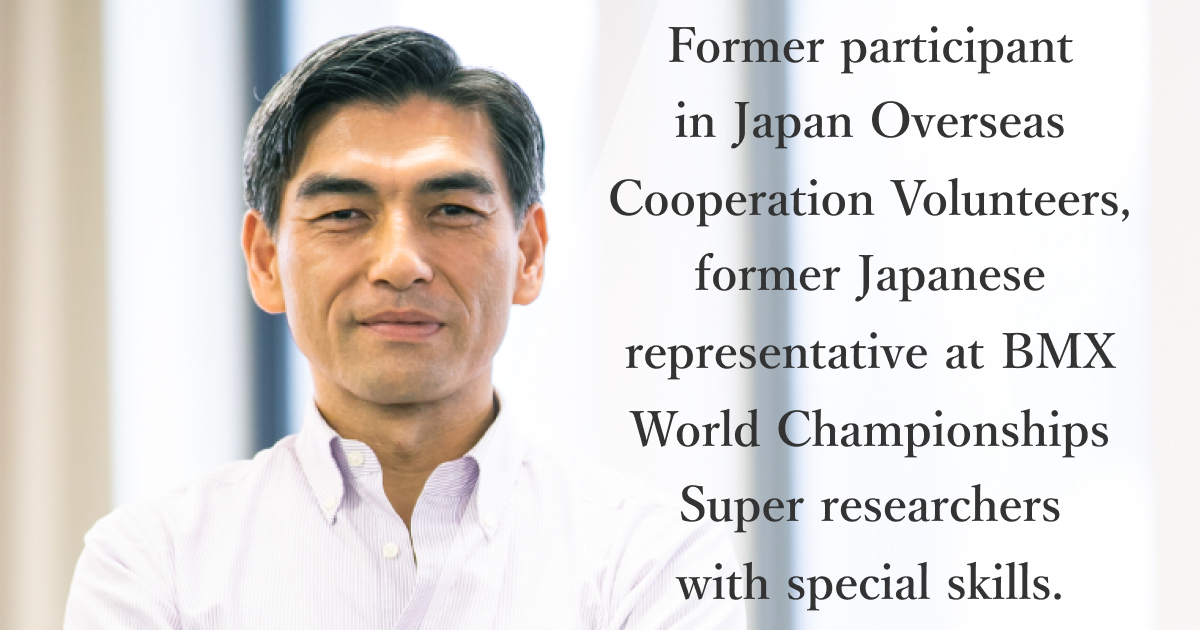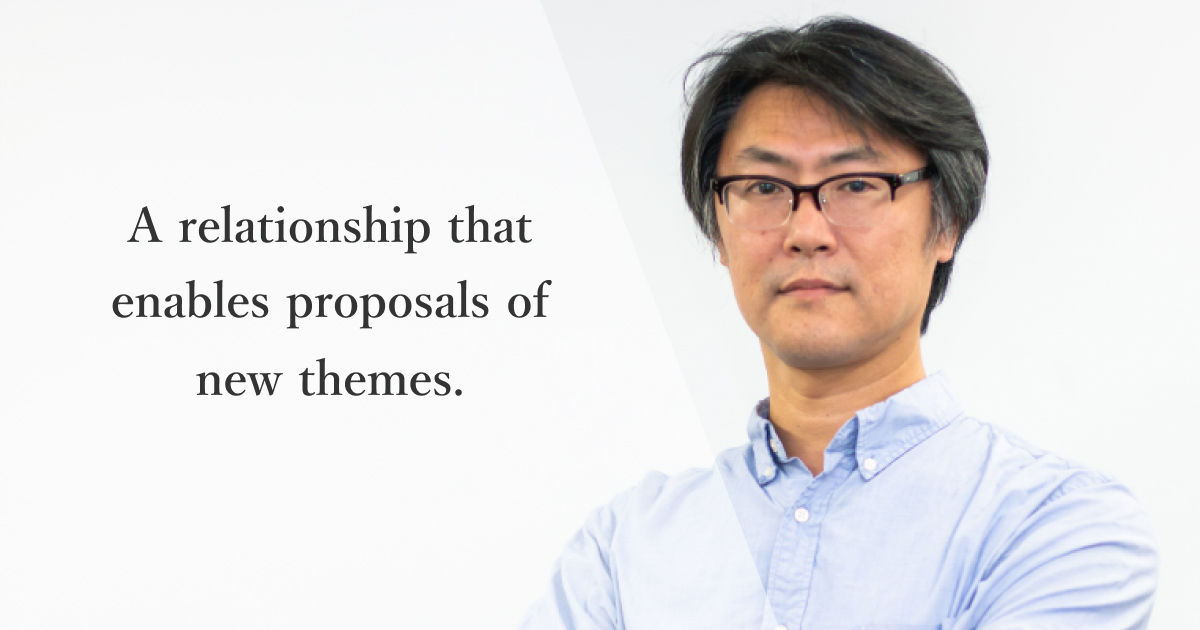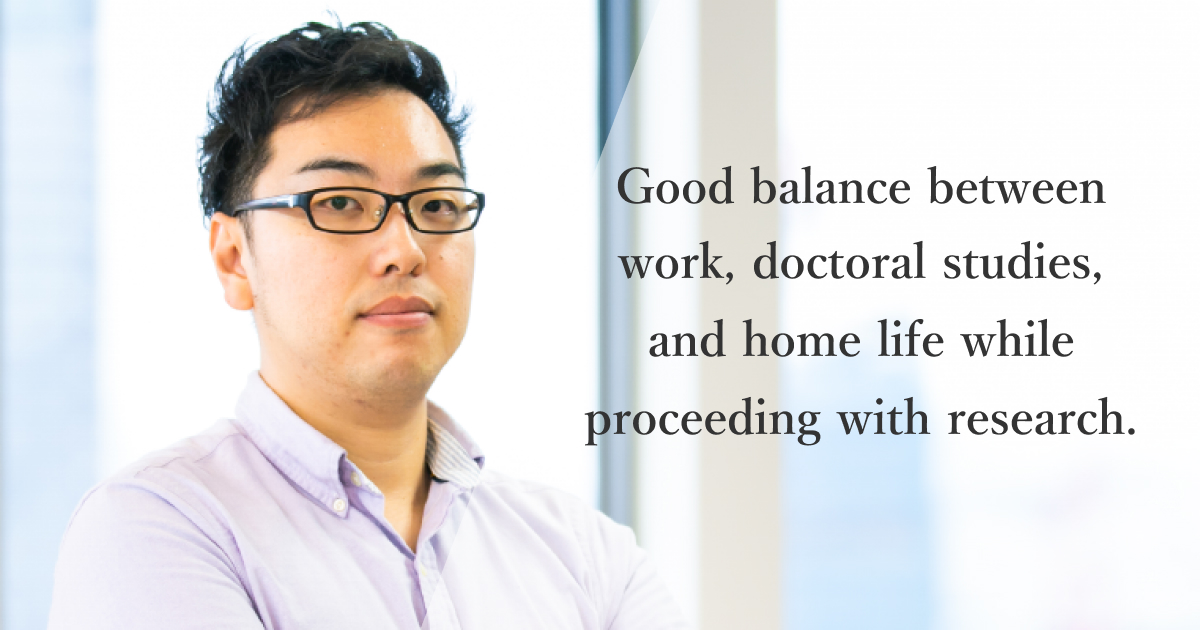Research and Development Group Researcher
Image
Recognition
Shinichi Sumiyoshi
Shinichi Sumiyoshi
PROFILE
Joined company in 2016
Engaged in the research and development of
3D sensor technology at a major electrical manufacturer
Finding the right balance between work, doctoral studies, and home life while striving research.
DENSO IT Laboratory (hereafter IT Lab) has a “working doctorate” system, through which employees can carry out doctoral course work at a university while remaining employees of the company, encouraging the increased pursuit of doctoral degrees. As one of the employees who has taken advantage of this system to pursue his doctorate, we asked Mr. Sumiyoshi about the company and his private as a researcher.
The benefits of doctoral support systems for working researchers
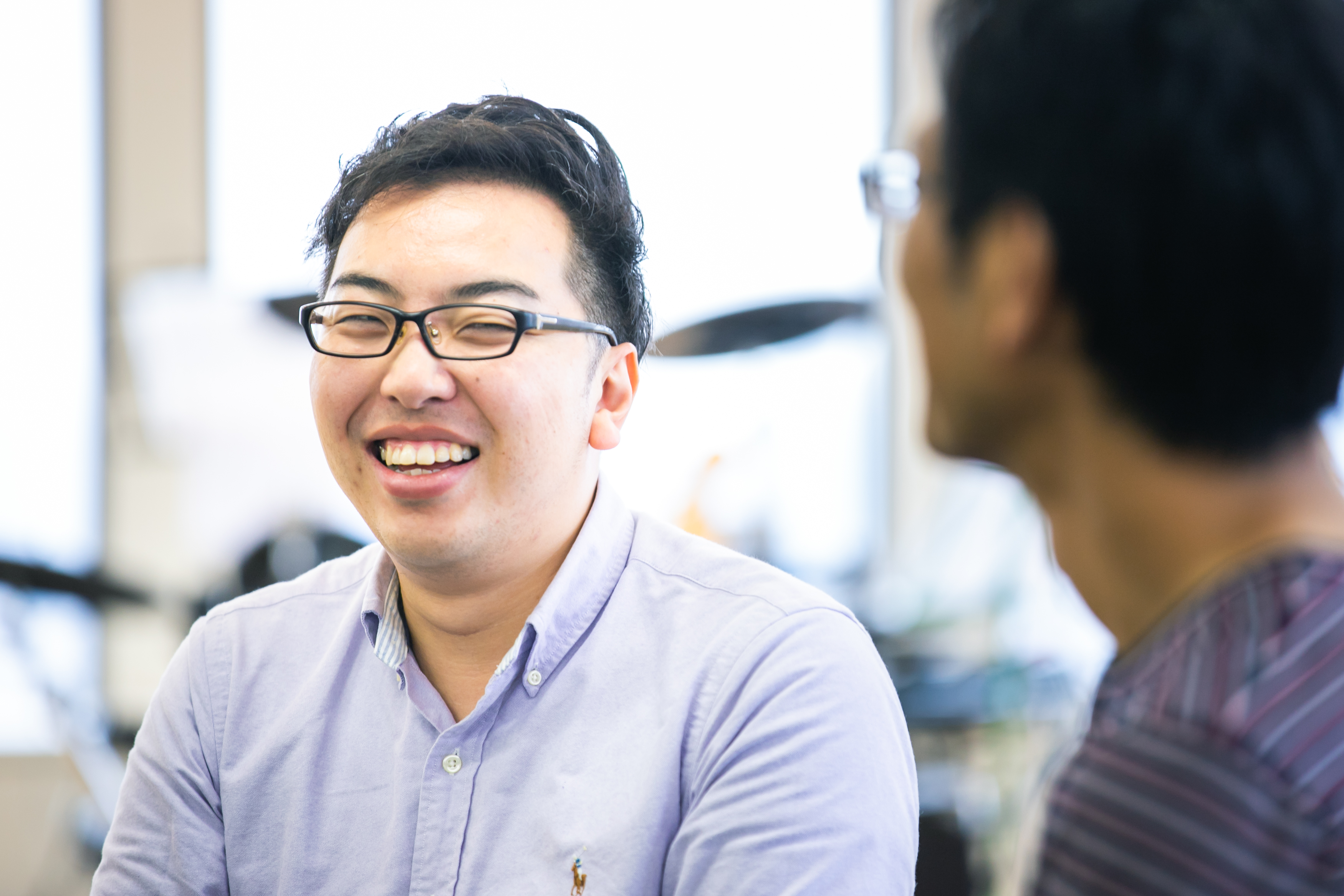
― What sort of research do you do at IT Lab presently, Mr. Sumiyoshi?
“My research field is 3D measurement, which means research into ways to convert physical forms into data. For example, if there was a cup in front of the eyes, there would be a truly large number of methods by which we could measure it. From among those many options, we must evaluate the precision and speed necessary
and create new methods to achieve the larger objective. That means judging whether all we want is a quick measurement of its dimensions, or a more time consuming, detailed measurement that includes surface deformities. As part of the thought process that goes into that, I do research that leads to new methods of measurement.”
― Why did you settle on that as the theme of your research?
“When I first joined the company, it was a new field for me, but I wanted to take on the challenge of AR and VR research. Specifically, I carried out research into the 3D recognition techniques used with head mounted displays. After first research was completed, I launched a project to research 3D measurement in April, 2018, taking advantage of the research experience that I gained as a student and in my previous work. I’m convinced that this research theme will be easy to propose as a new technology for Denso.”
― We’re told that you will use the doctorate system this fall and begin classes at a university graduate program.
“IT Lab has a program called “Working Doctorate,” and I plan to use that to get a doctorate degree. I’m able to take courses while remaining an employee and I receive 100,000 yen annually as support for three years, along with a 70,000 yen bonus if I complete my degree”
― That sounds like a nice benefit.
“Definitely. It encourages a lot of understanding among my coworkers about the benefits of getting a doctorate, so I’m grateful for that, too”
― Why have you decided to carry out research at a graduate school, despite already being employed by a research-focused company?
“There were two main reasons. One was that I thought it would give me the chance to ask my professors about fields outside my specialty. The other is that I thought I might also be able to collaborate in research with professors. The professor, whom I study under, works in the field of 3D displays. My expertise is also in 3D, but in the category of measurement and recognition. Given how interrelated these fields are, I thought it would be interesting to combine our knowledge, and collaborate. It was for that reason that I chose the graduate school at my old alma mater, Hokkaido University.”
― Compared to doing research for a company, where much of what you do has to remain confidential to those outside, this sounds like a very open community.
“Many of the employees at IT Lab deal with cutting edge research, so the company actually considers it important to actively reveal our research to the world and test the value of its technology. All the members of our team participate in the top conferences for their field and our culture is one where staff are encouraged to present new technology and give back to society. We also think to engage in discussion with as many people as possible through these presentations and gain feedback about our research.”
How moving to IT Lab from a major corporation just before marriage allowed the flexibility necessary to support a family in which both partners work.
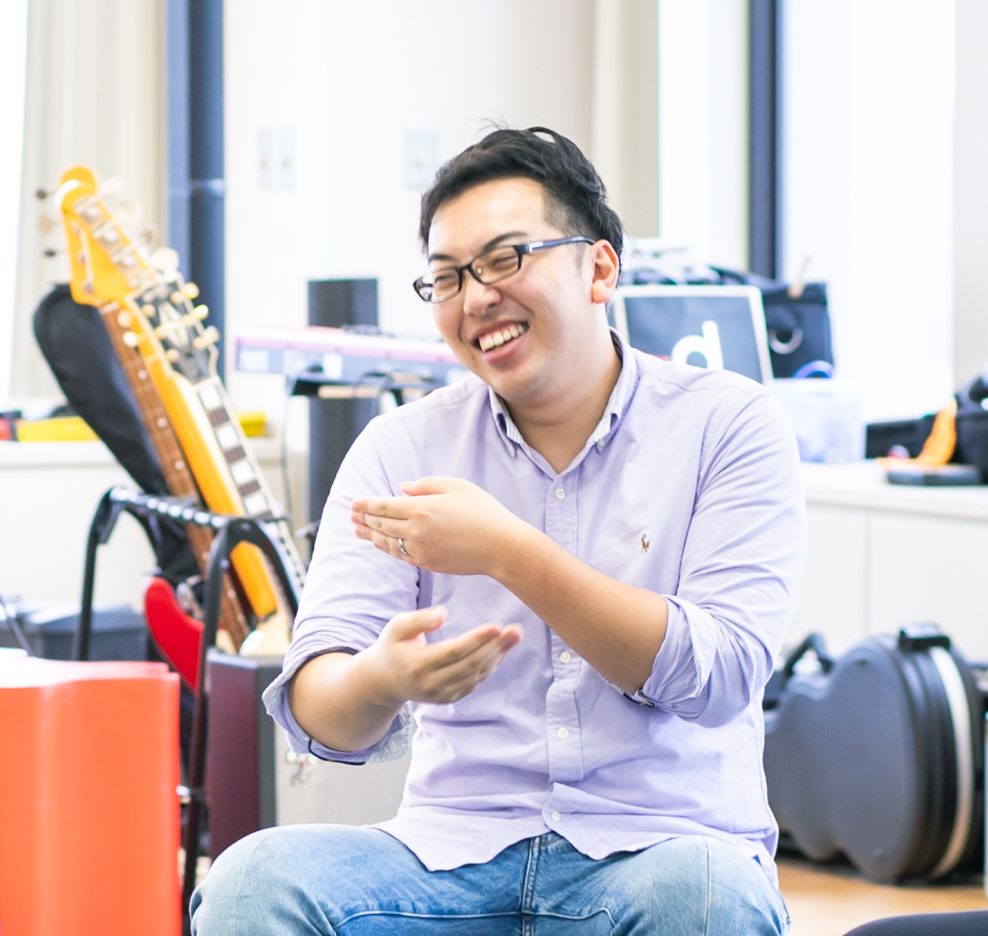
― We heard you only recently got married.
“We held our ceremony in March, 2018, and we had already filed our marriage papers before then. It’s been about two years since we filed the papers.”
― In the future, it looks like you’re going to be traveling to Hokkaido a lot. How does your wife feel about that?
“Our relatives and friends told me that I didn’t need to choose a university so far away (laugh). However, my wife didn’t raise any particular objections.”
― Your wife also works full time, right?
“She’s a nurse. Around the time we got married, she switched to a division that doesn’t require her to work the night shift so often, but she’s still quite busy. I changed employment to IT Lab just before we filed the papers, but again, my wife didn’t raise any opposition”
― Changing jobs right before you get married is rather delicate timing.
“The change was already finalized and scheduled for about three months before we were married. When I met my wife’s parents, I explained this to them. The company where I worked before was rather well known and when I told them I was joining IT Lab, I did sense that there was some unease about my joining a company they had never heard of. However, they did not raise any objection to the change itself. Everyone told me that if it would make my research easier, then I should go ahead.”
― How has their reaction been since the change?
“Both my wife and my wife’s parents told me they’re glad I made the change to IT Lab. I’m given freedom with my time and I can even work from home, so that gives me the flexibility to help my wife with the housework and we can avoid making the burden on her too high, given how busy she is. If I had stayed at a company with strict work hours, I’m not sure we could have made things work.”
― Do you have any commitments or rules you follow with regard to dividing the housework?
We try to maintain the philosophy that whoever is able to do the housework at a given time does so. Specifically, since I’m on a discretionary work system with no set hours, I do the housework in the morning and my wife, who comes home earlier than me, does the housework in the evening. I wash the dishes after breakfast and take out the garbage before I go to work. At night, my wife cooks dinner. I think we’re able to maintain a good balance that isn’t too hard on either of us.”
― Does your wife do all the cooking?
“I cook from time to time. I’m pretty good at making pasta, so I often do that on days off. With that said, she’s a much better cook than I am, so I don’t try to do everything myself and instead, on the way home, I often buy side dishes or sweets at a nearby supermarket and shop to serve with dinner. We both have sweet tooths and we especially like chocolate, so we’re looking forward to colder weather (laughs).”
― Having sweets after dinner is your time to relax as a married couple, then.
“Yes. Or when my wife is on the night shift, we make time to relax after breakfast. We always make time, at least once a day, to talk and make plans for our days off. I think that enables us to maintain a healthy marriage and it’s something I owe to IT Lab and the high degree of freedom and flexibility we have with our schedule.”
I’m glad I revised my career plan before I hit my 30’s
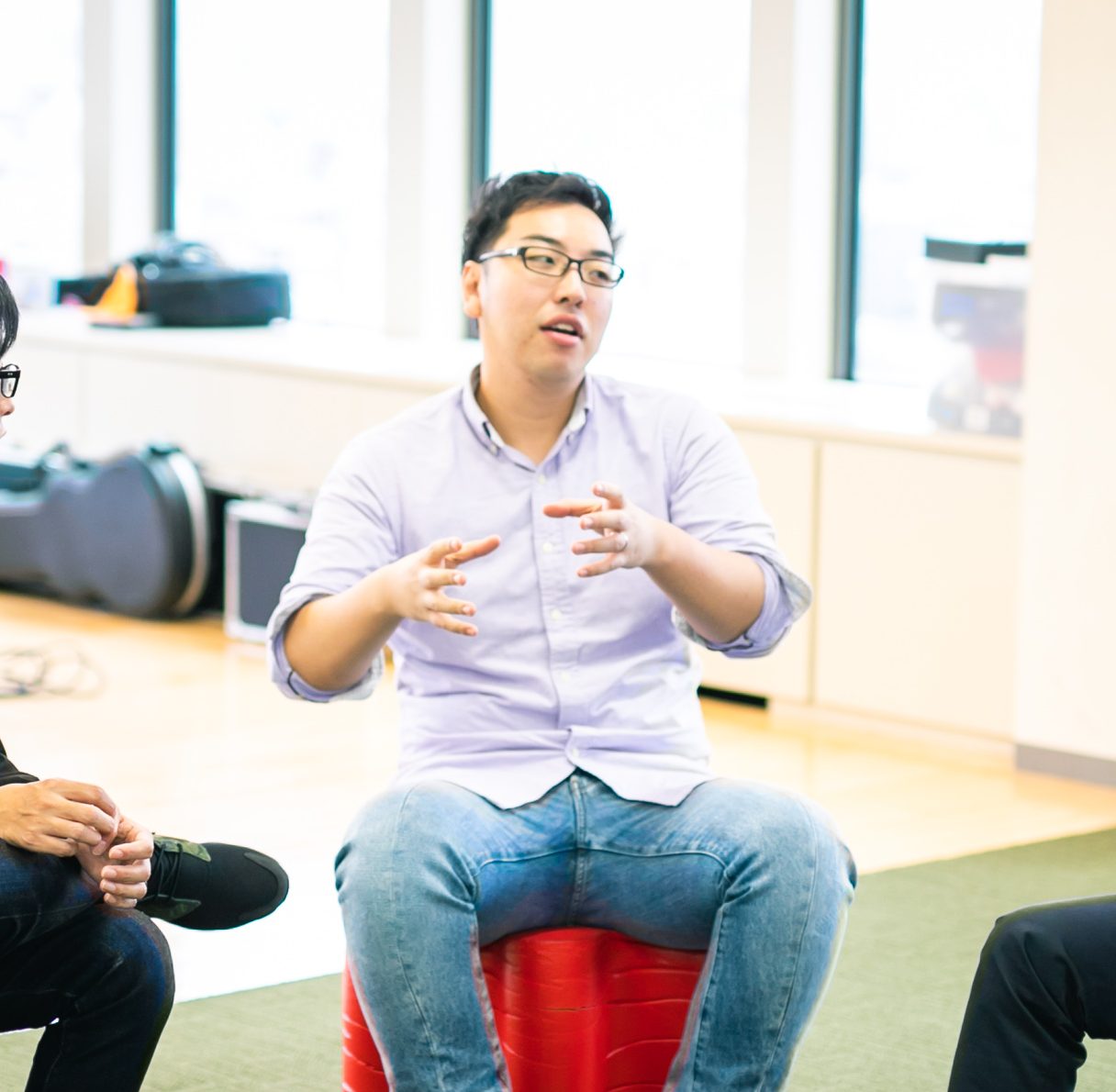
― How did you learn about IT Lab?
“I just happened to participate in a study meeting that took place on the IT Lab premises. I remember seeing the beautiful view from the window and thinking I’d like to work there. I was on the verge of turning 30 and it was time to take a second look at my career plan. I thought to myself that I’d like to have more freedom to focus on my research. I was attracted to IT Lab as the place where I could do that and so I applied. It didn’t take long before I was hired.”
― What are your impressions since officially beginning work?
“There really are a lot of amazing researchers working here (laugh). It’s something I knew was the case, beforehand, but the realization was even stronger after I began work. I also note that I have a lot of opportunities for discussion. I’m given many opportunities to present individual research and when I do so, everyone gives me their response. That leads to discussions, which is something I like about the IT lab culture. I didn’t have many opportunities like that at my old job, as I mostly worked on my own, so I’m really happy.”
― Do you feel like you’ve grown since joining?
“Yes, I do. I’ve learned how to summarize my presentations and give narrative to my research papers. Everyone gives me a lot of advice and I feel like I’ve been able to grow”
― Are you glad you switched companies?
“Yes, I am. Here, I can grow and I’m highly motivated. Plus the company buys me all the books I need (laughs).”
― Wow. By the way, I’ve heard that you often have discussions over drinks.
“Yes, that happens a lot. Lately, we have a lot of team members who like sake. Rather than a wine cellar, we’ve talked about building a cellar for sake in the company’s free space. We end up bringing home a lot of fine varieties of sake as souvenirs, after participating in academic conferences in other regions or going back to our home town, so the company decided to buy a cellar where we could store them and retain the flavor (laughs).”
― By having drinks at the office, you don’t need to worry about your surroundings and can speak freely.
“That’s right (laugh). Here, we can talk about work without worrying about information leaking out. And of course, we can have drinks while doing so. For someone who wants to focus on research, this really is an excellent environment.”
― It does seem like both your research and your social life will proceed. We’re rooting for you to get your doctorate.

